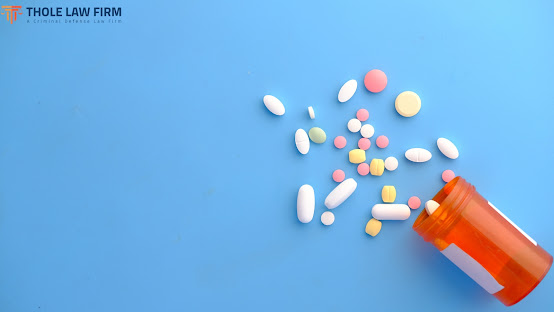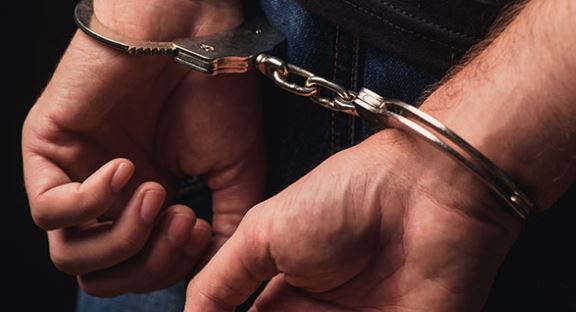Legal Consequences of Prescription Drug Fraud
In our daily lives, prescription drugs are important for our health. However, some people do illegal things with prescription drugs, which can get them into trouble with the law. It's important to know what can happen if you're involved in prescription drug offenses to avoid getting in trouble.
This blog will make it easy to understand what prescription drug fraud is, how common it is, and why it's important to know about the legal problems it can cause. By the end of this blog, you'll know what punishments you could face and how to stay legal regarding prescription drugs. Let's start learning about this important topic.
What is prescription drug fraud?
Prescription drug fraud is when people do something bad with prescription medicines. This might be getting the medicine sneakily or illegally, misusing it, or giving it to others when they shouldn't. Now, let's talk about some common ways people do this type of fraud:
Forging prescriptions
This means pretending to have a doctor's note for medicine you don't need. People who do this might fake the doctor's signature, alter the amount of medication they're supposed to get or make up health issues.
Doctor shopping
Doctor shopping is when someone goes to many doctors to get prescriptions for the same or similar medicines. This helps them get more medicine than they should from just one doctor's prescription.
Online pharmacies
Certain websites that sell medicines don't follow the rules and sell prescription drugs without asking for a real doctor's note. If you get medicine from these sites, you're also involved in breaking prescription drug rules.
Prescription alteration
This involves changing the details on a legitimate prescription, such as the medication name or quantity, to get more drugs than prescribed.
Understanding the legal consequences
Prescription drug fraud is taken very seriously by both federal and state authorities. Let's explore the potential legal consequences individuals may face if caught engaging in prescription drug fraud:
Criminal penalties
People who do something wrong with prescription drugs could get in trouble with the law. This could lead to serious punishments like:
Imprisonment
People found guilty of faking prescriptions for medicine might go to jail. The time they spend in jail can be a long time, and it depends on how bad the fake prescription was and the laws in that area.
Fines
If someone is found guilty, they might have to go to jail, and they might also have to give a lot of money as a punishment. These money punishments can be very costly, and you'll have to pay them on top of what you already paid for lawyers and stuff.
Civil penalties
Apart from criminal penalties, prescription drug fraud can lead to civil consequences:
Loss of medical license
If doctors or pharmacists cheat with prescriptions, they might get their licenses taken away, which means they can't work as medical professionals anymore.
Civil lawsuits and damages
If someone gets the wrong medicine because of prescription drug fraud, they can sue the person responsible and ask for money to make up for their harm. This may help them get some money to make things right.
Legal defenses
Remember, not everyone accused of faking prescription drugs is definitely guilty. Some people might have good reasons for what they did, and they can use certain legal arguments to defend themselves.
Valid medical purpose
Sometimes, people might need prescription medicines because they are sick. To show they had a good reason for getting these medicines, a strong defense can prove that their sickness made them do it.
Lack of intent
Showing what you meant to do is super important in criminal cases. If you prove that you didn't want to trick or cheat anyone, it might improve your situation in court.
Prescription errors
Sometimes, people might get accused of prescription drug fraud because of misunderstandings or mistakes in paperwork. If the prescription or medical papers have errors, that could be a good reason to defend yourself.
Reporting and whistleblowing
If you think someone might be doing something wrong with prescription drugs, you should tell the right people about it. This helps stop the problem and keeps you safe from getting into trouble. In some places, they have special rules to protect people who tell others about prescription drug problems.
Prevention and compliance measures
To avoid becoming entangled in prescription drug fraud, here are some steps you can take:
Education and Awareness
Stay informed about prescription drug laws and regulations in your area. Educate yourself and your loved ones about the threats and consequences of prescription drug fraud.
Prescription monitoring programs (PMPs)
Many states have Prescription Monitoring Programs in place to track prescription drug dispensing. These programs help identify suspicious patterns of drug use.
Regulatory compliance for healthcare providers
Healthcare professionals should ensure they follow all regulations when prescribing or dispensing medications. Compliance with these regulations can help prevent legal issues.




Comments
Post a Comment